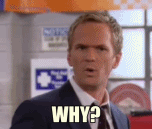So on Tuesday I had a 5,000 word day. I know some writers who do this pretty often. I am not one of them, though a lot of my writing friends think I am because I do tend to knock out pretty decent word counts when I get down to business.
Starting next week I am joining my writerly friends and participating in Camp NaNo. Yep, NaNo in July. All the same rules as NaNo in November, just with sunshine. But it got me thinking about the rules of NaNo that really cheesed me off and I thought I’d share some insight with you about my writing process and the right and wrong way to write.
The last two years I’ve participated in NaNoWriMo and have “won” by accomplishing the task of writing 50,000 words in the month of November. The first year I did it I felt pretty good about it and challenged myself try harder. So, in January of last year, I finished the MS I’d started in November and wrote the first third of another book, giving me a monthly total of 80k. I was on such a role that I finished that next book in Feb by writing 75k. It was insane. But kind of awesome because I knew I could do it.

But how did I do it? Did I start a brand new project? No. Did I write every day? No. Did I use an outline? Yes. These three things means I was actually a cheater when it came to NaNo. In the last year or so NaNo has finally changed their “rules” about how to accomplish the 50k in one month. When I first did NaNo the FAQ’s said that you had to start a new project to participate (though there was no way for them to know this either way), and that you shouldn’t use an outline.
I called bullshit on both those things and did it my way. I mean the only goal was to hit 50k new words in one month. Does it really matter if those 50k words started at chapter 1 or chapter 10 or 30? What if you were 30k words into a manuscript that was just kicking your ass and you knew if you participated in NaNo you would have the motivation to actually finish that MS? Why should you have to start something new if you had something that needs finishing?
And no outline? Eff that. Some people write with outlines. Some don’t. Some plot out with 3×5 cards plastered to a wall or the floor of their office. Some map out a book like a screenplay with acts. How can anyone running a site that is supposed to encourage writers to hit a goal tell them they’re doing it wrong?
But, like I said, they’ve changed the rules. Now they say:
We think NaNoWriMo works best when you start a brand-new project. However, what’s most important is being excited about what you’re writing. If you want to work on a pre-existing project, you have our full support!
Outlines, character sketches, and other planning steps are encouraged. Just be sure to only count words written during the month.
About damn time you got on the reality train, NaNo.
I was so upset when I first won NaNo only to find out I was kind of a cheater with my outline and unfinished MS waiting to be finished. But whatevs, I’m not going to change my process for anyone but me and the particular book I’m working on.
So that’s the big secret folks, no one piece of writing advice will work for everyone. And believe it or not, there’s a good chance your process will change over time.
I wrote Earth, Air, Water, and the first two thirds of Fire without an outline. As a pantser. Then I hit a wall with Fire. Maybe because it was the first time I was going to kill a major character. Maybe because it was the first emotionally charged book I’d written yet. Maybe I was afraid to finish it. Whatever it was, I was stuck. I knew what the last scene looked like, but I didn’t know how to get there. So I broke my cardinal rule of no outlines and I outlined that last third. And then I managed to write faster than I had in months.
I used to be a nighttime writer. Now I write with my first cuppa in the morning. Now I can’t pants a book. I need an outline. It was thanks to my well detailed outline of chapter 2 that I managed to write 5,000 words on Tuesday. But you know what? When I tried to write my very first book, I outlined that sucker to the T. And I never finished it. I figured out that I’d lost the momentum, the urgency, to tell the story because, in my novice mind, I’d already told it in the outline.
So see? You change. If you need writing advice, seek it out. Someone might say something that resonates with you and unlocks a secret to get you writing. But if someone says something that doesn’t work for you, ignore it. No one has the magic spell, the perfect balance of ingredients that will work for every writer.
For me, writing Monday through Friday, in the mornings, with an outline, works for me. But it works now. Maybe I’ll be a different writer in two years, who knows? It certainly didn’t work for me ten years ago.
So, don’t let rules tell you you aren’t doing it right. Are you writing? Then you’re doing it right, whatever gets the words on the page is the right way. Be a cheater like me, who cares? Screw ’em!





















